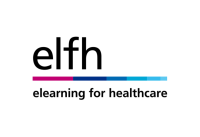Professionalism & Management | Communication | Breaking bad news



Breaking bad news
Session overview
Description
This session explores basic principles in breaking bad news and examines how these can be employed given the reality and constraints of the working life of a foundation doctor.
UKFP Curriculum 2021
This elearning session covers some of the behaviours in:
- FPC1: Clinical assessment: assess patient needs in a variety of clinical settings including acute, non-acute and community
- FPC2: Clinical prioritisation: recognise and, where appropriate, initiate urgent treatment of deterioration in physical and mental health
- FPC3: Holistic planning: diagnose and formulate treatment plans (with appropriate supervision) that include ethical consideration of the physical, psychological and social needs of the patient
Learning objectives
By the end of this session you will be able to:
- identify the reasons why breaking bad news is so difficult for doctors
- describe a framework within which to structure the telling of bad news
- list the basic principles of good practice
- list the skills that enable bad news to be imparted sensitively
- describe how to maximise your effectiveness and look after yourself
Prerequisites
Before commencing this session you should:
- be familiar with and have basic competence in the core communication skills of the medical interview as taught in undergraduate medicine, especially relationship building and explanation and planning
Nearly all of us will, at some time in our lives, receive bad news. As receivers of bad news, we will expect the giver of the news to be skilled in the task and sensitive to our particular needs.
As doctors, almost all of us will break bad news regularly as part of our everyday working life, yet most of us never become comfortable in this stressful situation.
Even when you understand the principles of breaking bad news, the reality of your working world as a foundation doctor and the constraints within which you work will frequently get in the way of you performing the task to the best of your ability.
- Medical and Pharmacology | Human diseases and medi...
- Posted By eIntegrity Healthcare e-Learning
- Posted Date: 2024-11-06
- Location:Online
- This session will describe rheumatoid arthritis (RA), systemic lupus erythaematosus (SLE) and Sjögren’s syndrome. It will also identify the medications used for each condition and consider the impact of each condition on dental care.
- Medical and Pharmacology | Human diseases and medi...
- Posted By eIntegrity Healthcare e-Learning
- Posted Date: 2024-11-06
- Location:Online
- This session provides an overview of some of the clinically important respiratory challenges you may come across as a dental practitioner.
- Medical and Pharmacology | Human diseases and medi...
- Posted By eIntegrity Healthcare e-Learning
- Posted Date: 2024-11-06
- Location:Online
- This session describes the signs and symptoms that may manifest in patients diagnosed with common renal problems and the relevance of common renal disorders to the delivery of dental care.
- Medical and Pharmacology | Human diseases and medi...
- Posted By eIntegrity Healthcare e-Learning
- Posted Date: 2024-11-06
- Location:Online
- This session will look at the relevance of common neurological disorders to the delivery of dental care by the dental practitioner.
- Medical and Pharmacology | Human diseases and medi...
- Posted By eIntegrity Healthcare e-Learning
- Posted Date: 2024-11-06
- Location:Online
- This session will look at the signs and symptoms of neurological disorders and how the dental practitioner may recognise them.

